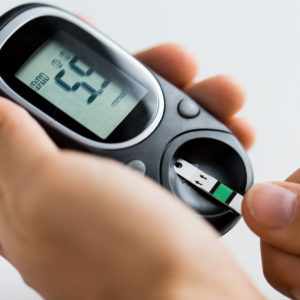Every 23 seconds a person in the United States is diagnosed with diabetes. At this rate, one in every three of us will have diabetes by 2050. As a diabetes clinical nurse specialist and certified diabetes educator (CDE), this probably means that I’ll always have a job. Unfortunately, it also means that I will be teaching and supporting many who develop complications of diabetes such as heart and kidney disease.
Diabetes is a complex condition that affects the body’s ability to use blood sugar for energy. As a certified diabetes educator, I have specialized knowledge and expertise in helping people with diabetes to understand and manage their condition. Diabetes educators focus on self-care skills related to healthy eating, being active, monitoring, taking medication, problem solving, reducing risks of complications, and healthy coping.
However, Medicare regulations prohibit CDEs from reimbursement for diabetes education. Legislation was introduced in Congress, Access to Quality Diabetes Education Act, to rectify this issue and to recognize CDEs as authorized providers for diabetes self-management education.
In my 13 years as a diabetes specialist in the hospital, I have seen many patients who are admitted for strokes, heart attacks, infections or amputations. Sadly, for people with diabetes, all of these medical issues can be a direct result of poor control of their blood sugar levels. A large majority of people with diabetes-related complications have had either very little diabetes education in the past, or they have the necessary knowledge, but not the self-management support to successfully get through the daily challenges of living with this complex, chronic condition.
Studies show that patients who complete diabetes education are more likely to improve diabetes control, reduce risk or progression of complications, reduce diabetes-related distress and depression, and are less likely to be hospitalized. This not only improves the quality of life for someone with diabetes, but it results in significant cost-savings for the country: the United States spent $245 billion in 2012 on diabetes.
Two-thirds of people with diabetes who receive Medicare benefits are unable to meet blood glucose goals set by the American Diabetes Association. Education can support people as they adjust to their diagnosis and help them with strategies to manage their blood sugars.
Patients who are eligible for Medicare can receive up to 10 hours of diabetes self-management education within the first year of diagnosis and two hours during subsequent years. Diabetes educators often provide this education but are only reimbursed if billed by a provider within an accredited program. Given this restriction and the need for a provider referral for education, only about 10 percent of those eligible are getting the education and support they need.
Perhaps some people expect that the medication prescribed for them will be the answer. Oftentimes, it’s not enough; diabetes educators dig deeper to understand barriers to success and to empower and support those with diabetes as they set goals for behavior change.
Physicians who also provide care to patients with diabetes need not worry; this legislation will not change their clinical authority or oversight of patients’ treatment regimens. It will improve access for their patients who need education and self-management support during and between office visits.
November is Diabetes Awareness Month — a perfect time to act on behalf of those with diabetes or those at risk for diabetes. Did you know that the Centers for Disease Control and Prevention estimate that 29.1 million Americans have diabetes and an additional 86 million people are at high risk for developing diabetes? If the predictions about 2050 are true, we need to be prepared to support more fully the people who struggle with this challenging condition.
Diabetes educators provide this support. In order to expand access and reimbursement for diabetes education, credentialed diabetes educators need be added as authorized providers of Medicare-approved diabetes self-management education.
Contact your elected officials today and ask them to support and vote YES for the Access to Quality Diabetes Education Act.

